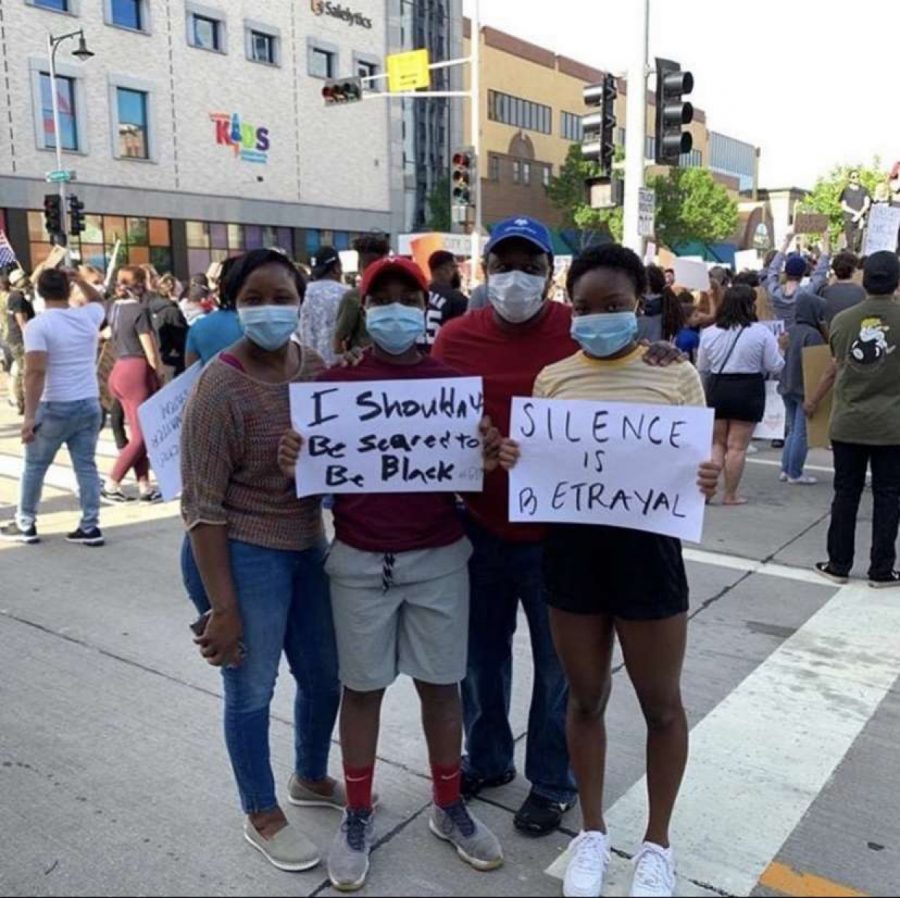Being a Minority in America: Young Advocate Shares Personal Perspective
October 12, 2020
Nine minutes.
The final nine minutes of George Floyd’s life on May 25, 2020 is seemingly all it took to spark a nationwide movement of outraged people demanding justice for victims of police brutality; however, it takes more. People of color have dealt with ignorance and inequality since the days of slavery. Despite efforts by civil rights leaders, such inequality prevails. The unjust execution of George Floyd is a straw – perhaps the last.
A young Zimbabwean American girl, age 10, moves to Neenah, from Atlanta, GA. Everything is unfamiliar, the most evident shift being that she didn’t see many faces that looked like hers. She feel isolated.
At age 11, the girl enrolls at Horace Mann Middle School. Her class attends a field trip to a resort. The girl is insecure about classmates seeing her natural hair. Tied up in a bun atop her head, her hair is a wonder to some female peers. They beg the girl to undo her bun and reveal her natural hair. When she refuses, they gather a group of boys to dump her in the water when she isn’t looking. The girls take the hair tie holding up her insecurity. Her head’s underwater but she can hear the kids comments. A dreadful feeling of embarrassment and shame washes over her.
She knows the ignorance never ends.
That young girl is Nicole Makope, a senior at NHS. She experiences first-hand racism and considers herself part of the Black Lives Matter movement. On social media, Nicole advocates her perspective as a person of color.
“When people were kneeling, people were mad. Peaceful marches weren’t taken seriously. The looting is a desperate cry for help. Businesses and materials can be replaced, but lives cannot. It’s a matter of lives over property.”
Ignorance fuels the flames of hate. The only way to stop ignorance is to listen to other’s perspectives.



Lia King • Mar 12, 2021 at 10:34 AM
This is a powerful, well-written story that illustrates something I will never experience. It is also applicable to the audience at Neenah High School, and it is important for students to understand different perspectives.
Maya • Oct 26, 2020 at 2:31 PM
I love how you started this story out and then transitioned into Nicole’s story, who goes to our high school. This shows the audience that racism is everywhere. Your writing is powerful, and you can tell that you are connected and truly care about what you are writing.
Sierra Smith • Oct 26, 2020 at 12:37 PM
It is very interesting to hear this real perspective of something that I could never relate to. This made it clear to me that I was oblivious to racism happening in Neenah, and even to those that I know. Nicole’s experience made me understand that racism is not just about the things that we see on the news, but it is also in our city and involves those we know. I feel as though there should be more effort to educate others who may have been oblivious as I was. Although I will never know how it would feel like to be discriminated against, I understand the Black Lives Matter Movement and know that there should be more programs implemented in communities that will help those who are dicriminated against.